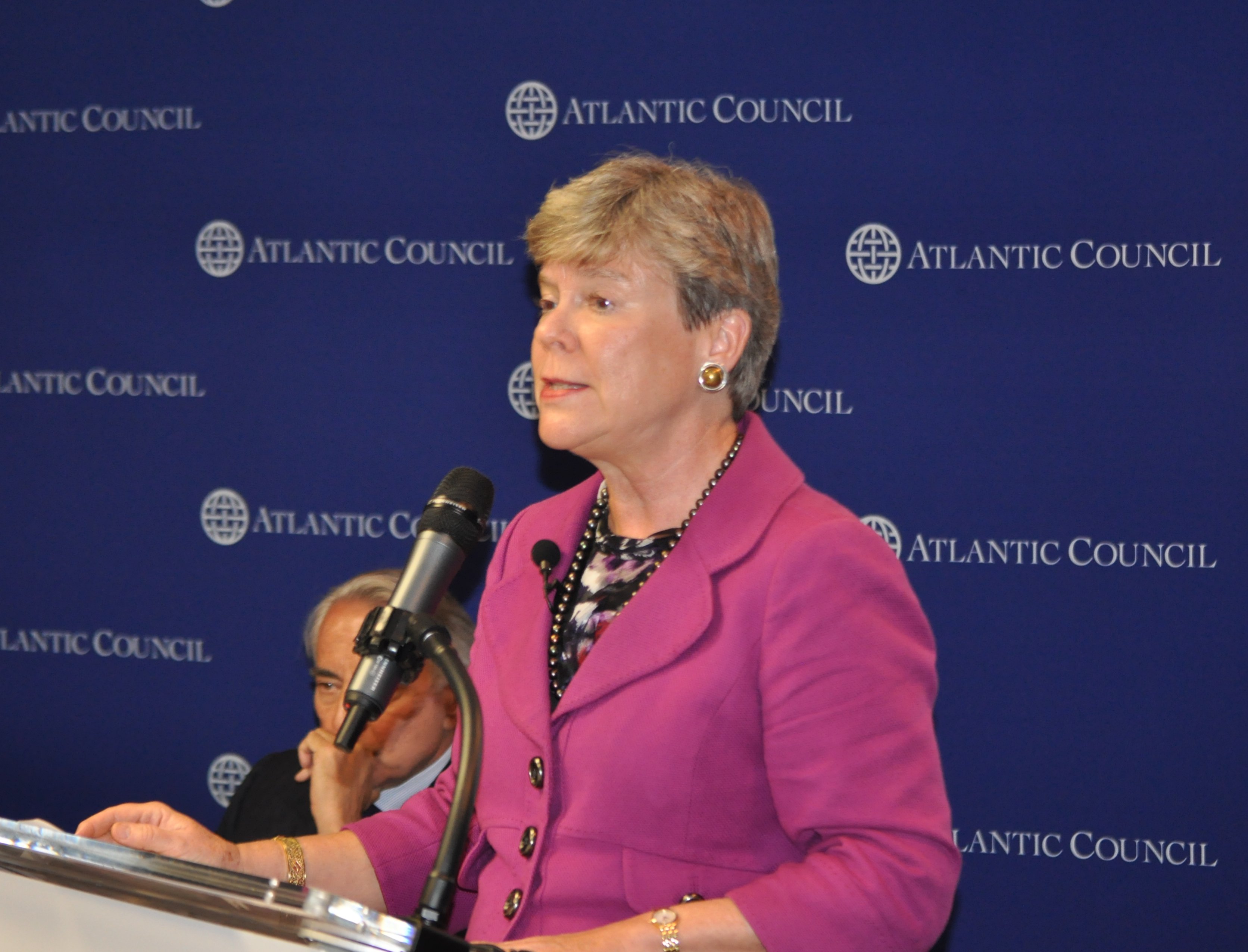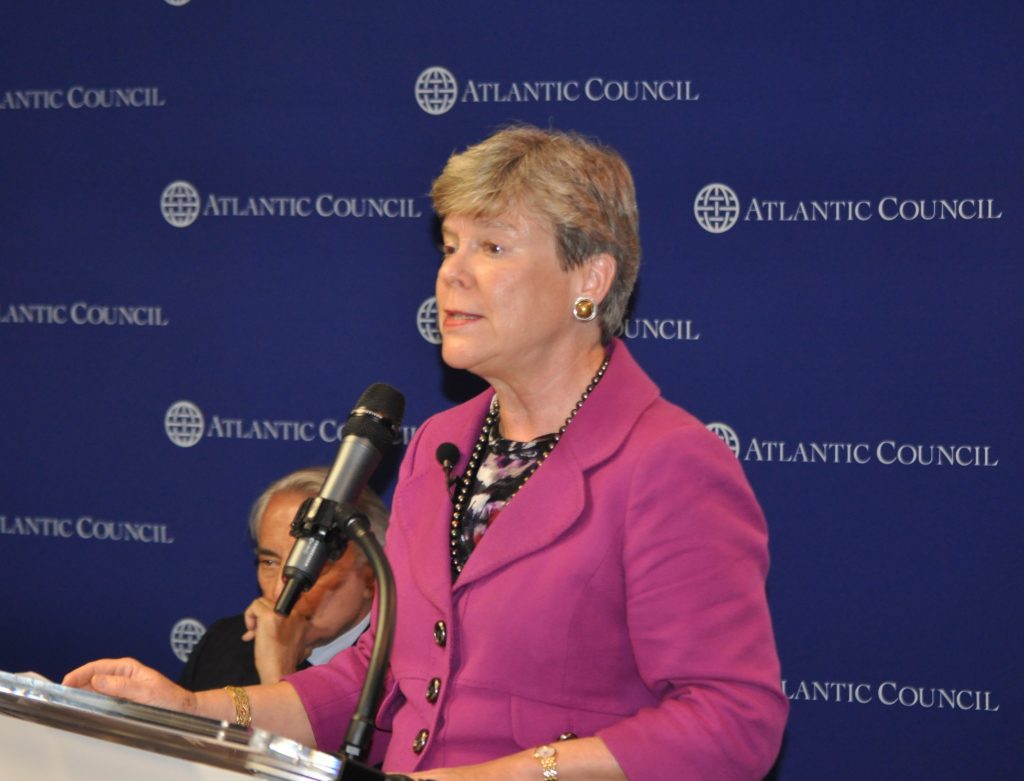
On September 9, the Atlantic Council, the Institute for Security and Development Policy and the US Army War College hosted a conference that focused on the trilateral US-Europe-Russia relationship and the current status and future of the reset. The sessions identified the obstacles and challenges facing the reset and steps for U.S. and European governments to drive relations with Russia forward.
AGENDA
Welcome and Introductions, First Panel: The State of the Reset
Panelists presented a generally positive outlook on the reset. Kent Logsdon demonstrated that the reset is not a permanent state of being, but an opportunity to build a strong relationship between the US and Russia. The participants agreed that the reset has been beneficial and that it is time to push the reset forward to broaden its scale.
Welcome and Introductions:
- Fran Burwell, Vice President, Director of Transatlantic Programs and Studies, Atlantic Council
- Svante Cornell, Director, Institute for Security and Development Policy, and Central Asia-Caucasus Institute, SAIS
Opening Remarks:
- Kent Logsdon, Director, Office of Russian Affairs, Bureau of European and Eurasian Affairs, US Department of State
Moderator:
- Svante Cornell, Director, Institute for Security and Development Policy, and Central Asia-Caucasus Institute, SAIS
Commentaries:
- Angela Stent, Professor, Georgetown University
- Kadri Liik, Senior Researcher, International Centre for Defence Studies
The Future of the Energy and Economic Relationship
Panelists offered a wary assessment of Russia’s long-term economic outlook as Russia continues to rely on energy revenues and wield energy as a political tool with the West. However, shale gas was highlighted as a possible game changer for energy security in the region. Also, Congressman Meeks discussed the benefits of engaging Russia through trade and the opportunities for cooperation that would open up with Russia’s entry into the WTO.
Opening Remarks:
- Gregory Meeks, Ranking Member, Subcommittee on Europe and Eurasia, Committee on Foreign Affairs, US House of Representatives
Moderator:
- Ross Wilson, Director, Dinu Patriciu Eurasia Center, Atlantic Council
Commentaries:
- Anders Aslund, Senior Fellow, Peterson Institute
- Alan Riley, Professor, City Law School
- Edward S. Verona, President, U.S.-Russia Business Council
- Ariel Cohen, Senior Research Fellow for Russian and Eurasian Studies and International Policy, The Heritage Foundation
The Challenge of Europe’s Eastern Neighborhood
Participants discussed the impact of the reset on Europe’s Eastern neighbors. Speakers from the region highlighted the dangers that a preoccupation with Russia could have on other developments in the region. For Ukraine and Moldova — both now at critical junctures — increased US attention will be critical to embolden reform and prevent backsliding in the region.
Moderator:
- Damon Wilson, Executive Vice President, Atlantic Council
Commentaries:
- Svante E. Cornell, Research Director, Central Asia-Caucasus Institute Silk Road Studies Program, SAIS
- Adrian Karatnycky, Senior Fellow, Atlantic Council
- Žygimantas Pavilionis, Ambassador, Republic of Lithuania
- Brenda Shaffer, Senior Lecturer, School of Political Sciences, University of Haifa
Moving the Arms Control Agenda Forward
With New START ratified, participants discussed next steps on the arms control agenda. Panelists were divided on whether or not there was an optimistic outlook on the state of arms control. Rose Gottemoeller stated that successful missile defense cooperation would strengthen strategic cooperation in the long term. An agreement will not likely be reached in the near future due to presidential politics on both sides.
Opening Remarks:
- Rose Gottemoeller, Assistant Secretary of State, Bureau of Arms Control, Verification and Compliance, US Department of State – Prepared Remarks
Moderator:
- Fran Burwell, Vice President, Director of Transatlantic Programs and Studies, Atlantic Council
Commentaries:
- Stephen Blank, Research Professor of National Security Affairs, US Army War College
- Richard Burt, Managing Director, McLarty Associates
- Simon Lunn, Senior Fellow, Geneva Centre for the Democratic Control of Armed Forces
This conference is generously sponsored by the U.S. Army War College and Riksbankens Jubileumsfond, and organized in conjunction with the Institute for Security and Development Policy in Stockholm, Sweden.
